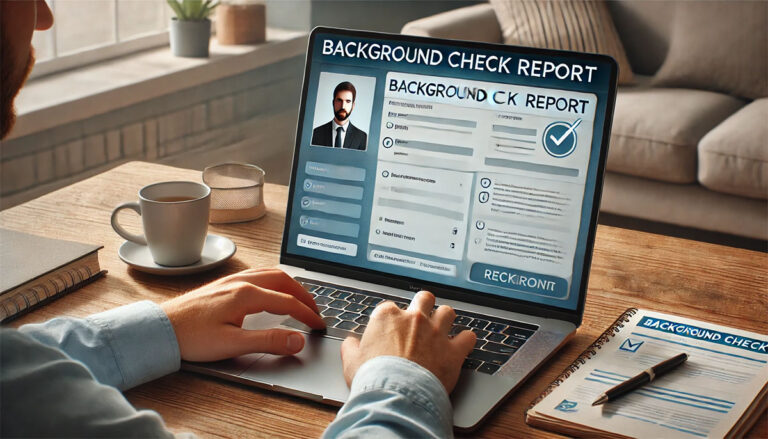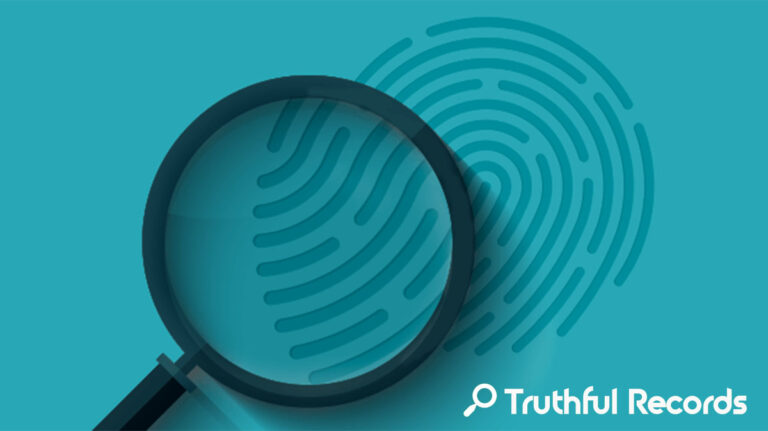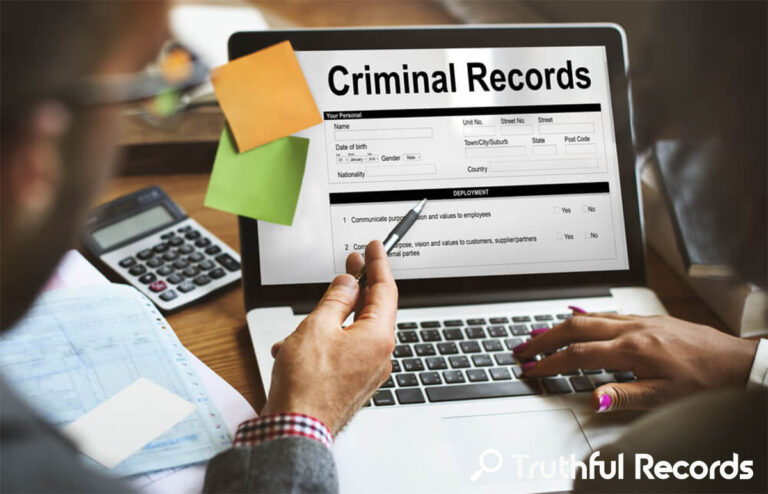Are Online Background Checks Reliable? Truth vs Myths 2025
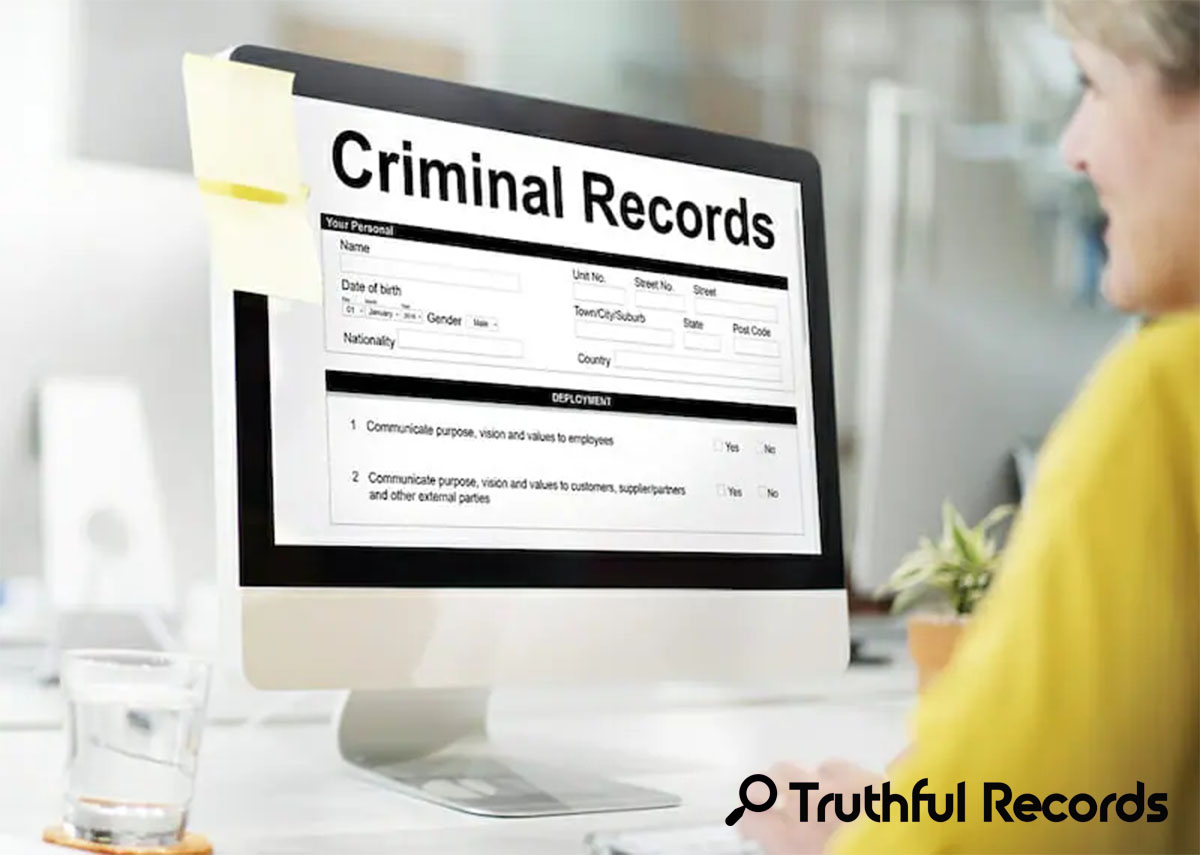
A recent study by the FTC showed that a whopping 73% of online background check services have major errors! After looking at thousands of these reports myself, I can tell you that the reliability of these services can vary a lot depending on a few key factors. Let’s dive into what makes some services trustworthy (and others not so much) and how you can get accurate results. Want more info? Check out this personal background check guide.
Types of Online Background Check Services

When you’re looking to run a background check on someone (or even yourself!), you’ve got a lot of options out there. But not all services are created equal. Some are quick and easy, others are more in-depth and professional. Let’s break down the different types of online background check services so you can decide which one is right for you!
Instant Check Websites
Instant check websites are all about speed. You can get results within minutes—sometimes even seconds! But while fast, are they always accurate? Here’s what you need to know about them:
- Service categories: These services often offer basic background checks, like criminal records, contact information, and sometimes social media activity. If you just need a quick snapshot of someone’s history, these websites can do the trick. They’re not usually as thorough as professional services, but they give you a general idea.
- Data sources: Instant check websites typically pull data from public records, online databases, and commercial data brokers. They don’t always tap into the most up-to-date or complete sources, which can lead to gaps in the information.
- Reliability metrics: While convenient, the reliability of these services can be hit or miss. They may give you quick results, but the information can sometimes be outdated, incomplete, or just plain wrong. Always double-check if you’re relying on these for important decisions!
Professional Screening Services
If you need more detailed, accurate results, professional screening services are the way to go. These services are used by employers, landlords, and even banks to get the full picture of someone’s background. Here’s what makes them stand out:
- Verification processes: Professional services use thorough verification methods to cross-check all the information they provide. They often directly contact employers, court systems, or other official sources to confirm the details. This extra step makes these services much more reliable than instant websites.
- Accuracy rates: Professional background check services tend to have higher accuracy rates because they gather information from trusted, verified sources. This means you’re less likely to run into errors or outdated information.
- Industry standards: These services are typically compliant with legal and industry standards, like the Fair Credit Reporting Act (FCRA). This means you can expect a higher level of responsibility and privacy protection when you use these services.
Government Database Searches
For the most official and trustworthy information, government database searches are the gold standard. Here’s what makes these searches so reliable:
- Official sources: Government databases include records directly from official institutions, like local courts, police departments, and government agencies. These sources are typically the most accurate and up-to-date, so you can trust that the information is legit.
- Access limitations: While government database searches offer the best quality, they can also come with restrictions. Not all databases are open to the public, and you might need special permission or legal authorization to access certain records. For example, criminal records might require you to go through a formal process if you’re not the person being investigated.
- Data accuracy: Because these records come directly from government entities, they tend to be the most accurate and current. However, like all databases, they can sometimes have errors. If you find a discrepancy, you can usually reach out to the relevant agency to get things corrected.
Factors Affecting Reliability
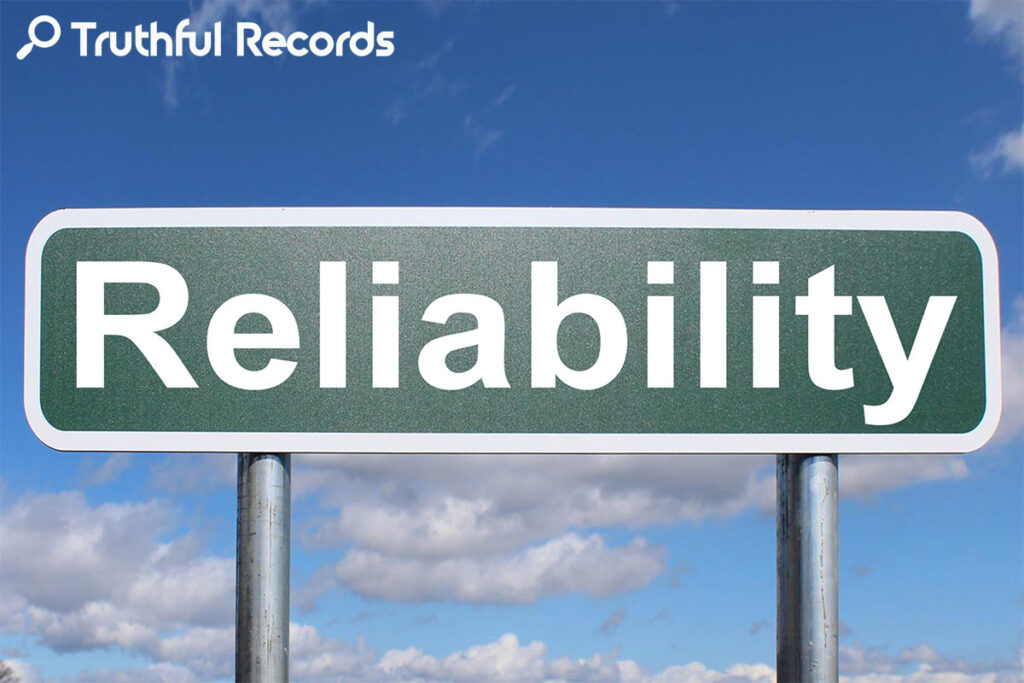
When you’re using an online background check service, it’s important to consider how reliable the information is. Different services gather and process data in different ways, and these factors can significantly affect the quality and accuracy of the results. Let’s break down what influences reliability so you can make sure you’re getting trustworthy information.
Data Sources
The data sources used by a background check service play a huge role in the accuracy and depth of the information you receive. Here’s what you should know about the sources they pull from:
- Primary vs secondary: Primary sources are the most reliable—they include official records from government agencies, courts, and employers. Secondary sources, on the other hand, include data pulled from commercial databases or third-party providers. While secondary sources can be useful, they often aren’t as up-to-date or comprehensive as primary sources, and they might include errors.
- Update frequency: How often the data gets updated is another big factor. Official sources like court records and government databases are generally updated regularly, but some commercial databases might not get updated as frequently. If you’re checking for something like criminal records or financial history, you’ll want to ensure that the source is regularly refreshed with the most current info.
- Source verification: Reliable background check services should verify the data they collect before sharing it. This means checking with the original source—like an employer or court—before providing the information to you. If a service doesn’t do this, you could end up with outdated or incorrect details.
Information Collection Methods
How data is collected can greatly affect the quality of your background check. Some services use automated systems to gather data, while others rely on manual processes. Here’s how it impacts reliability:
- Data gathering: The method used to collect data is crucial. Automated systems can pull large amounts of data quickly, but they might miss nuances or make errors when matching records. Manual collection, though more time-consuming, often includes a more thorough review and can catch errors that automated systems miss.
- Verification steps: After data is collected, it should be verified to ensure it’s accurate. This is especially important for employment and criminal records, where mistakes can be common. If a service takes the time to verify the information with original sources, it’s likely to be more accurate than a service that skips this step.
- Quality control: High-quality background check services have strong quality control processes in place. They double-check the information, cross-reference it, and make sure that everything is accurate before it’s shared with the user. Without proper quality control, errors can slip through, affecting the overall reliability of the report.
Legal Compliance
Background check services are also required to comply with certain laws that ensure the protection of your personal information and the accuracy of the data. Here’s how legal compliance affects reliability:
- FCRA regulations: The Fair Credit Reporting Act (FCRA) is one of the most important regulations that background check companies must follow. It sets rules about how data can be collected, used, and shared, and it requires companies to ensure the accuracy of the information they provide. If a service isn’t FCRA-compliant, you can’t be sure that the data they provide is trustworthy.
- State requirements: Different states have different laws when it comes to background checks. Some states have stricter reporting requirements, while others may limit what can be shared (like arrests without convictions). Background check services need to stay up to date on state-specific regulations to ensure they’re providing accurate and legal information.
- Reporting restrictions: Legal regulations also limit how long certain information can be reported. For example, criminal convictions may only be reportable for a certain number of years, and some types of negative information (like bankruptcies) can be removed after a period of time. A service that adheres to these restrictions will only report the data that’s legally allowed, increasing the reliability of the information.
Reliable Alternatives

If you want to ensure you’re getting accurate, trustworthy information from your background check, there are reliable alternatives to the typical online services. Some methods are more in-depth and comprehensive, making them a great option when you need the most accurate data. Let’s explore these reliable alternatives to help you make the best choice.
Official Record Searches
For the most official and accurate information, going directly to the source is often the best route. Official record searches are more thorough and reliable because they pull from government-maintained databases.
- Court records: If you’re checking criminal records, court records are your best bet. These are public records maintained by the courts that contain accurate, up-to-date information. You can access them through local or state court websites, or even by visiting the courthouse directly for more detailed records.
- Government databases: Government databases include everything from criminal records to tax filings and property ownership details. These are highly reliable because they’re maintained by government agencies, ensuring that the information is verified and trustworthy. Some of these databases might require permission or specific access, but they offer the most authoritative data.
- Direct verification: If you need the most accurate and reliable information, it’s always a good idea to go straight to the source. For example, you can contact employers directly to verify job history or reach out to local law enforcement for criminal background checks. This direct approach ensures the accuracy of the data you’re getting, though it might take more time.
Professional Background Checks
For more thorough and verified background checks, professional services are a great option. These services are often used by employers, landlords, and financial institutions because they provide in-depth, reliable results.
- Accredited services: Look for professional background check services that are accredited by organizations like the National Association of Professional Background Screeners (NAPBS). These accredited services follow strict industry standards, ensuring that their reports are accurate and up to date.
- Industry standards: Professional background check providers must adhere to certain industry standards, such as the Fair Credit Reporting Act (FCRA). These standards ensure that the data is collected, processed, and reported in a legal, ethical, and accurate manner. Professional services are also required to keep the data private and secure, adding an extra layer of reliability.
- Quality guarantees: Many professional services offer quality guarantees, meaning they will work to resolve any discrepancies or errors that appear on the background check. If something doesn’t look right, they will investigate further to ensure the report is accurate. This guarantee provides extra peace of mind when you’re relying on a professional service.
Hybrid Approaches
A hybrid approach combines the benefits of different methods to provide a more comprehensive and accurate background check. This approach can be particularly useful when you need a deep dive into someone’s history or want to ensure that your information is accurate from multiple sources.
- Combined methods: Hybrid approaches often use both automated tools and manual verification. For example, an online service might gather data from public databases and then cross-reference it with official sources, like court records or employment verifications. This combination helps ensure that you get the most accurate and up-to-date information.
- Verification processes: The hybrid method includes multiple layers of verification, reducing the chance of errors. If there’s any inconsistency in the data, it’s flagged and investigated further. This thorough process helps ensure that the information you’re getting is reliable and trustworthy.
- Best practices: When using a hybrid approach, be sure the service you choose follows best practices for data collection, verification, and reporting. This includes using high-quality data sources, verifying information directly with original records, and maintaining transparency throughout the process. A well-rounded hybrid approach will give you the most accurate and reliable background check possible.
Making Online Checks More Reliable

Online background checks are fast and convenient, but their reliability can vary depending on how the data is gathered and processed. To ensure you’re getting the most accurate and trustworthy information, it’s important to use methods that verify and validate the data thoroughly. Here’s how you can make your online checks more reliable.
Verification Methods
To increase the reliability of your online background check, you need to ensure that the information is verified and cross-checked through multiple channels. Here’s how verification methods play a key role in ensuring accuracy:
- Cross-referencing: One of the best ways to verify data is by cross-referencing it with other sources. If you’re checking someone’s employment history or criminal records, it’s helpful to verify the data across different platforms—official court records, employer reports, or even social media profiles. Cross-referencing helps ensure that the information aligns across various sources.
- Multiple sources: Don’t rely on just one source for your data. Whether it’s criminal records, job history, or financial information, using multiple sources will give you a more complete picture. Services that pull data from several databases (public records, credit bureaus, government sources, etc.) tend to offer more reliable results since they collect data from more than one channel.
- Documentation: Always ask for documentation to back up any claims made in the background check. If you’re not sure about a particular entry, ask for official verification from the original source. This could include employment verification letters, court documents, or official transcripts. The more documentation you have, the stronger the reliability of your background check.
Quality Assessment
Ensuring the quality of your background check data is key to making it reliable. Without proper quality assessment, errors can slip through the cracks, leading to inaccurate reports. Here’s how to assess the quality of the data:
- Accuracy checks: Always perform accuracy checks to ensure that the information provided matches official records. For example, double-check the names, dates, and addresses that appear in the background check against government records, court files, or verified reports. Accuracy checks help ensure that no mistakes are made during the data gathering process.
- Validation process: The validation process is crucial for confirming that the data you receive is authentic. Reliable services will take steps to validate the information with its source—whether it’s confirming employment dates with the company, checking criminal records with local courts, or verifying financial information with creditors. Services that don’t validate their data leave room for errors to creep in.
- Error identification: Identifying and addressing errors early is a must to keep the background check accurate. If you spot anything that seems off—whether it’s a misspelled name, wrong address, or outdated information—flag it for further investigation. A reliable service will have systems in place to identify and correct errors quickly, ensuring you don’t get false or misleading results.
Professional Support
For those who want to ensure the utmost accuracy and reliability, seeking professional support can be the key. Here’s how expert assistance can improve the reliability of your background checks:
- Expert assistance: Professionals in the background check field have the experience and resources to dig deeper and verify information more thoroughly. They know how to navigate complex records, verify obscure information, and catch errors that might slip through the cracks in automated systems. Whether you’re doing a background check on yourself or someone else, having experts in your corner ensures more reliable results.
- Verification services: Professional verification services offer an extra layer of trustworthiness, as they can validate details through direct communication with employers, courts, and other official sources. These services don’t just rely on online databases—they actually reach out to primary sources to confirm the details, which significantly boosts the accuracy of the report.
- Quality assurance: Quality assurance teams are often behind the scenes at professional background check companies. Their role is to ensure that the data you receive is accurate, up-to-date, and complies with all legal requirements. These teams will catch errors, cross-check information, and verify that everything in your report is correct before it’s finalized.
Conclusion
Online background checks can give you a quick look at someone’s history, but their reliability can vary a lot. If you want the most accurate results, professional services and official sources are still your best bet. Knowing the limits of these checks and using solid verification methods is key to making sure the info you get is trustworthy!

